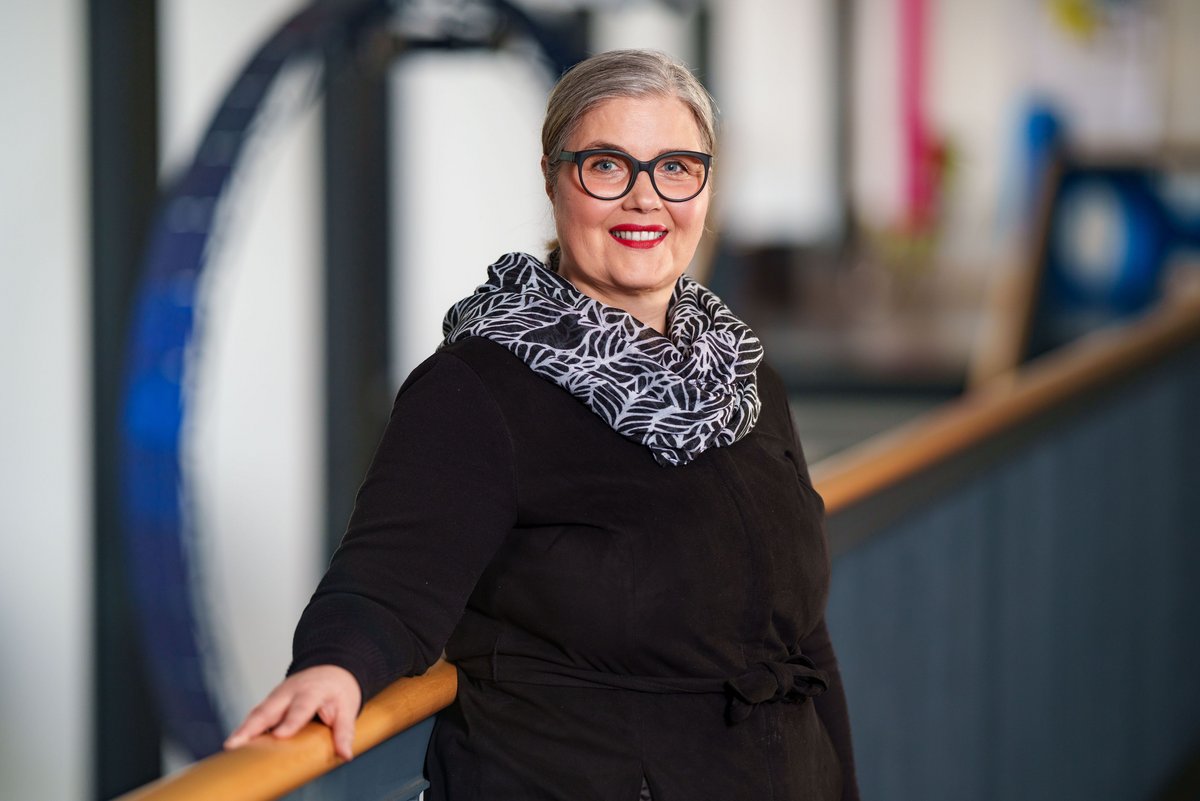On board as editor since January: Dr phil. Britta Radkowsky
Dr Radkowsky, what inspired you to become an editor for science communication and what excites you about working in the field of communication and marketing at BTU?
I was inspired above all by my doctoral studies in March 2024. After completing this project, which I had pursued alongside my full-time job as a journalist, I missed the scientific exchange, the scientific environment. As I've always had a keen interest in the research projects of others, it made sense to combine this thirst for knowledge with my job as an editor. As a science communication editor at BTU, I am now in my element. I write, conduct interviews, come up with formats, talk to the media and learn new things from a wide range of disciplines every day. That gives me great pleasure.
What are the biggest challenges you face as a science communication editor and how do you deal with them?
The biggest challenge is time, or rather the lack of time. There are so many interesting projects, so many interesting people to talk to, so many interesting topics that the day is actually far too short to fit in all the ideas. Also, certain routines have not yet been properly established. I come from the "other" side of the desk, so I'm not familiar with things that are taken for granted in press and public relations work and I often have to ask questions about work processes or practices that are unclear to me. Fortunately, I have helpful colleagues who give me a helping hand.
What skills and experiences from your career to date are particularly helpful in your current role?
In addition to being able to process content quickly and collate information quickly, my ability to grasp things quickly is particularly helpful. I honed this in local journalism, where I learnt the craft of journalism. In particular, the variety of topics reminds me a lot of my years at the daily newspaper, which were characterised by flexibility in terms of content. I can also use my expertise as a certified trainer in the Corporate Identity department. We have a very talented PR trainee here who I am introducing to the art of journalistic writing. That's a great thing.
How do you see the role of science communication in today's society and what trends do you see for the future?
Science communication plays a central role in today's society. It makes complex scientific findings understandable for the general public and in this way contributes to informed decision-making by citizens. They are very interested in what scientists do. It is therefore all the more important to formulate research results in such a way that the general public recognises the benefits and grasps the social significance. The storytelling trend helps here. Science communicators are increasingly focussing on narrative formats in order to package complex topics in easily understandable stories.
Contact us
Kommunikation und Marketing
T +49 (0) 355 69-3837
britta.radkowsky(at)b-tu.de

